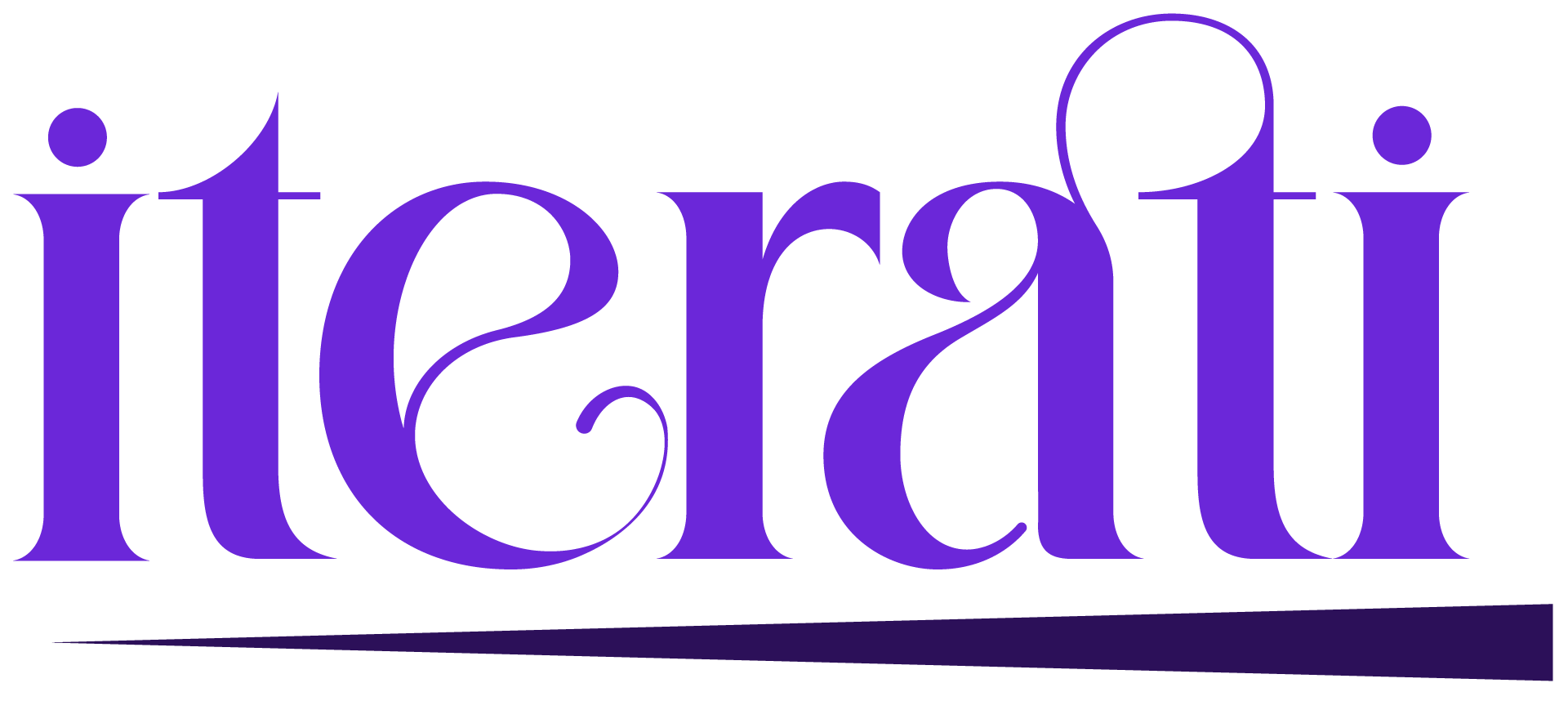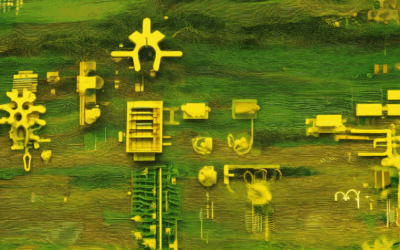As businesses continue to evolve in an increasingly digital world, understanding the latest technological trends becomes essential for staying competitive and innovative. The landscape of technology is constantly shifting, with new advancements emerging that reshape industries and consumer behaviors. From artificial intelligence and machine learning to cloud computing and edge computing, the technological trends of 2025 promise to bring significant changes that will redefine how businesses operate. Exploring these trends not only provides insight into the future but also offers strategies for adapting and thriving in a rapidly changing environment. Whether you’re looking to stay ahead of the curve or simply better understand the forces shaping your field, this comprehensive exploration of business technology trends is designed to equip you with the knowledge needed to make informed decisions.
Key Takeaways
– Agentic AI Dominance: The rise of agentic AI, as identified by Gartner, marks a significant evolution in artificial intelligence, enabling machines to perform complex tasks independently.
– Quantum Computing Breakthroughs: Quantum computing is poised to revolutionize industries with breakthroughs in cryptography, drug discovery, and more, driven by investments from major tech giants.
– AI Transformation in Healthcare: Artificial intelligence is revolutionizing healthcare through personalized diagnostics, predictive analytics, and accelerated medical research.
– Web3 and Decentralized Systems: The shift toward decentralization and user ownership of data is reshaping business operations and consumer interactions via blockchain, NFTs, and decentralized applications.
– Cybersecurity Innovation: Advanced AI-driven cybersecurity tools are emerging to protect against sophisticated threats, becoming essential for businesses.
– AI-Powered Everything: Artificial intelligence is permeating daily life across industries, automating processes, optimizing operations, and delivering personalized experiences.

What is a Technological Trend in Business?
Technological trends in business encompass innovative tools and platforms that companies adopt to enhance efficiency, improve decision-making, and gain a competitive edge. These technologies drive digital transformation, streamline operations, and empower employees to deliver better outcomes.
-
1. Artificial Intelligence (AI)
AI has revolutionized business operations through applications like chatbots, predictive analytics, and process automation. Companies leverage AI to analyze vast datasets, predict market trends, and optimize resource allocation. Tools like ChatGPT are transforming customer service and internal communication.
-
2. Internet of Things (IoT)
IoT enables seamless connectivity between devices, enabling real-time monitoring and data exchange. Businesses use IoT for tracking inventory, optimizing logistics, and managing equipment. Smart factories and connected vehicles are becoming common in industrial settings.
-
3. Cloud Computing
Cloud-based solutions have become integral to modern business operations. Services like SaaS (Software as a Service), PaaS (Platform as a Service), and IaaS (Infrastructure as a Service) provide scalable and flexible IT infrastructure. Platforms like AWS and Microsoft Azure dominate the market.
-
4. Big Data Analytics
Big data analytics helps businesses make data-driven decisions by processing large volumes of information. Technologies like Hadoop, Spark, and Tableau enable companies to uncover patterns, forecast trends, and personalize customer experiences.
-
5. Cybersecurity
With increasing cyber threats, robust cybersecurity measures are essential. Businesses implement advanced security frameworks, encryption, and threat detection systems to protect sensitive data. Regular updates, employee training, and incident response plans are critical components of modern security strategies.
-
6. Remote Work Tools
The rise of remote work has accelerated the adoption of collaboration tools like Slack, Zoom, and Microsoft Teams. These platforms enable teams to communicate effectively, manage projects, and maintain workflow continuity regardless of physical location.
-
7. Blockchain
Blockchain technology is being adopted for secure transactions, supply chain transparency, and decentralized systems. While initially popular in finance, its applications are expanding into healthcare, logistics, and voting systems.
-
8. Augmented Reality (AR)/Virtual Reality (VR)
AR and VR are being integrated into training programs, marketing campaigns, and customer experiences. Retailers use AR to showcase products in immersive ways, while enterprises leverage VR for simulations and virtual classrooms.
-
9. Sustainability Technology
Technologies like AI-driven energy management systems and renewable energy integration are helping businesses reduce their carbon footprint. Companies are also adopting circular economy models to minimize waste and maximize resource efficiency.
These technological trends are reshaping industries, driving innovation, and creating new opportunities for growth. Businesses that embrace these technologies early are better positioned to thrive in a rapidly evolving market landscape.
Recent Technology Trends
-
Artificial Intelligence and Machine Learning
AI and ML continue to revolutionize industries, with advancements in natural language processing, computer vision, and autonomous systems. Companies like Iterati leverage these technologies to drive innovation and efficiency across various sectors.
-
Quantum Computing
Quantum computing is rapidly advancing, promising breakthroughs in cryptography, optimization, and drug discovery. While still in its early stages, it holds immense potential for transforming global markets and scientific research.
-
Sustainability and Green Tech
With increasing awareness of environmental impact, sustainable technologies are gaining momentum. From renewable energy solutions to circular economy models, companies are prioritizing eco-friendly innovations to meet global sustainability goals.
-
Metaverse Technologies
The metaverse is becoming a focal point, with advancements in virtual reality, augmented reality, and spatial computing. Platforms are developing immersive experiences across gaming, education, and social interactions, reshaping how people connect and engage.
-
Web3 and Blockchain
Decentralized web applications powered by blockchain technology are gaining traction, offering alternatives to traditional centralized systems. This trend is particularly prominent in finance, healthcare, and supply chain management.
-
Cloud Computing Evolution
Cloud computing continues to mature, with multi-cloud strategies and edge computing becoming standard. Providers like Iterati optimize cloud solutions to enhance scalability, security, and cost-efficiency for businesses worldwide.
-
Cybersecurity Innovations
As cyber threats grow sophisticated, cybersecurity measures are evolving to counteract advanced persistent threats. Companies are adopting AI-driven threat detection, zero-trust frameworks, and robust encryption to protect sensitive data.
-
Augmented Reality (AR) and Virtual Reality (VR)
AR and VR are increasingly being integrated into educational tools, gaming experiences, and enterprise applications. Their applications span training simulations, virtual meetings, and immersive marketing, driving new forms of user interaction.

What Are The 4 Types Of Trends In Business?
Business trends come in various forms, each offering unique opportunities and challenges for entrepreneurs and organizations. Understanding these trends can help businesses stay competitive and adapt to market changes effectively. Below are the four primary types of trends in business:
- Economic Trends
Economic trends are driven by broader macroeconomic factors, including inflation rates, GDP growth, unemployment rates, and consumer spending patterns. These trends influence supply and demand dynamics, labor costs, and overall market conditions. For example, during periods of high inflation, businesses may focus on pricing strategies to maintain profitability. - Social Trends
Social trends involve shifts in societal values, behaviors, and preferences. These trends can emerge from demographic changes, cultural shifts, or evolving consumer expectations. For instance, the rise of sustainability awareness has led many companies to adopt eco-friendly practices. Understanding social trends helps businesses align their products and services with what consumers value most. - Technological Trends
Technological trends refer to innovations and advancements in industries like artificial intelligence, cloud computing, blockchain, and IoT. These trends drive efficiency, productivity, and new business models. Companies that embrace emerging technologies early often gain a significant competitive advantage. For example, adopting AI-driven tools can streamline operations and enhance customer experiences. - Regulatory Trends
Regulatory trends are changes in laws, regulations, and compliance requirements that affect how businesses operate. These trends can impact industries differently, requiring companies to adjust their strategies accordingly. For example, changes in data privacy laws can influence how businesses handle customer data and marketing efforts.
By monitoring these trends, businesses can anticipate future challenges and opportunities, enabling them to make informed decisions and stay ahead of the competition.
For more insights into leveraging these trends, explore resources from trusted platforms like Iterati , where experts discuss innovative strategies and advancements shaping tomorrow’s business landscape.

What is the Biggest Technology Trend?
As of 2025, the biggest technology trend is the rise of agentic AI , as identified by Gartner. Agentic AI refers to autonomous machine “agents” capable of performing complex tasks independently, moving beyond the traditional query-and-response functionality of generative chatbots. These agents can handle enterprise-related responsibilities without human intervention, marking a significant evolution in artificial intelligence.
Key Technology Trends of 2025:
- Agentic AI :
Agentic AI is revolutionizing industries by enabling machines to make decisions, solve problems, and adapt to dynamic environments. This development builds upon advancements in reinforcement learning and natural language processing, allowing AI systems to operate with greater autonomy. - Quantum Computing :
Quantum computing continues to gain momentum, promising breakthroughs in fields like cryptography, drug discovery, and optimization. Companies like IBM and Google are leading the charge, with quantum processors showing potential to solve problems previously deemed intractable. - AI Integration in Healthcare :
Artificial intelligence is transforming healthcare through personalized diagnostics, predictive analytics, and drug discovery. Startups and established firms alike are leveraging AI to enhance patient care and accelerate medical research. - Web3 and Decentralized Systems :
The concept of Web3, which emphasizes decentralization and user ownership of data, is gaining traction. Blockchain technology, NFTs, and decentralized applications are reshaping how businesses operate and consumers interact online. - Cybersecurity Innovations :
As reliance on digital platforms grows, so does the threat of cyberattacks. Advanced AI-driven cybersecurity tools are emerging, offering better protection against malicious actors and sophisticated threats.
For more insights into these trends and their implications, explore Iterati’s articles on cutting-edge technologies and their impact on future industries: Iterati.org .
Which Technology Is Booming Now?
Several technologies are currently experiencing significant growth and innovation. Here are some of the most prominent ones:
- Artificial Intelligence (AI): AI continues to advance rapidly, with applications in chatbots, virtual assistants, and machine learning driving widespread adoption across industries.
- Quantum Computing: This emerging technology is still in its early stages but shows immense potential for solving complex problems and revolutionizing fields like cryptography and drug discovery.
- Blockchain Technology: Beyond cryptocurrencies, blockchain is being applied in supply chain management, healthcare, and decentralized finance (DeFi), making it a key area of investment and development.
- Cybersecurity: As cyber threats grow more sophisticated, demand for advanced security solutions is rising, making this a critical area of focus for businesses and governments.
- Cloud Computing: With the rise of remote work and digital transformation, cloud services remain indispensable, with major providers continuing to innovate and expand their offerings.
- Autonomous Vehicles: Self-driving technology is progressing steadily, with companies like Waymo leading the charge and preparing for commercial deployment in the near future.
- Biotechnology: Advances in gene editing, personalized medicine, and synthetic biology are pushing the boundaries of this field, offering groundbreaking treatments and innovations.
- Space Exploration: Private companies are making significant strides in space travel, with ambitious plans for lunar missions, Mars exploration, and the development of reusable rockets.
- Sustainability and Green Energy: The push towards renewable energy sources like solar, wind, and hydrogen is driving innovation in energy storage and distribution.
- Emerging Markets and Digital Payments: In regions like Africa and Southeast Asia, mobile payments and fintech are booming, enabling financial inclusion and accelerating digital transformation.
- Augmented Reality (AR) and Virtual Reality (VR): These technologies are increasingly being adopted in gaming, education, and workplace collaboration, with hardware and software advancements making them more accessible.

Top Tech Trend in 2025
The top tech trend in 2025 is the widespread adoption of AI-powered solutions across industries, with a particular emphasis on AI in cybersecurity . This trend is driven by the rapid evolution of artificial intelligence technologies, enabling businesses to enhance efficiency, improve decision-making, and mitigate risks.
Key Tech Trends Shaping 2025:
- AI-Powered Everything
Artificial intelligence is expected to permeate every aspect of daily life, from healthcare to transportation. Companies are increasingly leveraging AI to automate processes, optimize operations, and deliver personalized experiences. - Quantum Computing Breakthroughs
Quantum computing is poised to revolutionize industries such as cryptography, drug discovery, and financial modeling. Major tech giants are investing heavily in quantum research, aiming to unlock unprecedented computational power by 2025. - Blockchain Technology Goes Mainstream
Beyond cryptocurrencies, blockchain is being adopted for supply chain management, decentralized finance (DeFi), and secure data sharing. Its role in transforming traditional industries will accelerate, making it a cornerstone of modern business infrastructure. - Sustainability and Green Tech Innovations
As environmental concerns grow, companies are prioritizing sustainability. Green tech innovations, such as renewable energy storage systems and carbon-capture solutions, will dominate the market, driving investment and development in eco-friendly technologies.
Conclusion:
The convergence of AI, quantum computing, blockchain, and sustainability will define the tech landscape in 2025. These trends not only reflect technological progress but also reshape industries and consumer behaviors, making them essential to understand for staying competitive in the global market.




0 Comments